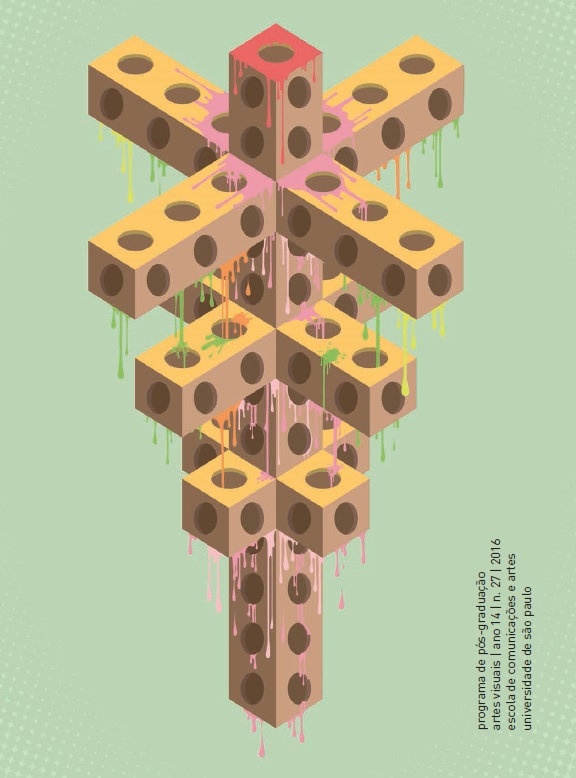Hubert Damisch e Stephen Bann: uma conversa
DOI:
https://doi.org/10.11606/issn.2178-0447.ars.2016.117618Abstract
Having studied with Merleau-Ponty and Pierre Francastel, Hubert Damisch (1928) raises as a key figure in the epistemological renewing of the disciplinary field of art history, having opened it up for the contributions of psychoanalysis, philosophy, anthropology and semiotics, while assigning to it a unique theoretical scope – far beyond the traditional jurisdictions that have set apart art history from the concerns of the theory of art. A jazz musician in his youthful, and attracted firstly by film before being driven towards visual arts, Damisch have always claimed a theoretical density for the field of art history, where he would work from a multifarous horizon of interests – painting, architecture, literature, photography, ethnology. He has produced a crucial reflexion on the logics of image, being author of referential studies on the subject, such as Théorie du nuage: pour une histoire de la peinture (Paris: Seuil, 1972), L’Origine de la perspective (Paris: Flammarion, 1987), Le Jugement de Pâris: iconologie analytique, (Paris: Flammarion, 1992), Un Souvenir d’enfance par Piero della Francesca (Paris: Seuil, 1997) and La Dénivelée: à l’épreuve de la photographie (Paris: Seuil, 2001). His oeuvre shows a singular and unconventional way of dealing with art history, marked by his methodological freedom to move with boldness between the art of the present and the past. Damisch has teached at École Normale Supérieure and afterwards at École des Hautes Études en Sciences Sociales. This interview, given to a group of art historians, theoreticians and art critics, and conducted mostly by the art historian Stephen Bann, editor of Oxford Art Journal, originally appeared in a special issue of this publication [vol. 28, n. 2, 2005, p. 157-181], as a result of a conference dedicated do Hubert Damisch’s work. The conference was promoted by the journal in partnership with Tate Britain, in October 2003. Besides Stephan Bann, the discussions also involved the participation, as interviewers, of Margaret Iversen, John Goodman, Stephen Melville and Yve-Alain Bois.Downloads
Downloads
Published
Issue
Section
License
The responsibility for obtaining written permission to use in the articles materials protected by copyright law lies entirely with the author(s). Ars is not responsible for copyright breaches made by its collaborators.
The authors have the copyrights and grant the journal the right of the first publication, with the article licensed under the Creative Commons BY-CC License.
Licensees have the right to copy, distribute, display, and carry out the work and make derivative works from it, including with commercial purposes, granted that they give the due credit to the author or licensor, as specified by them.
Licensees compromise to inform the appropriate credit, provide a link to the license, and indicate if changes were made.
Respected the terms of the license, the licensors/authors are not allowed to revoke the conditions above mentioned.
After the publication of the articles, the authors keep the copyrights and the rights to republish the text exclusively in unpublished books and collections.



